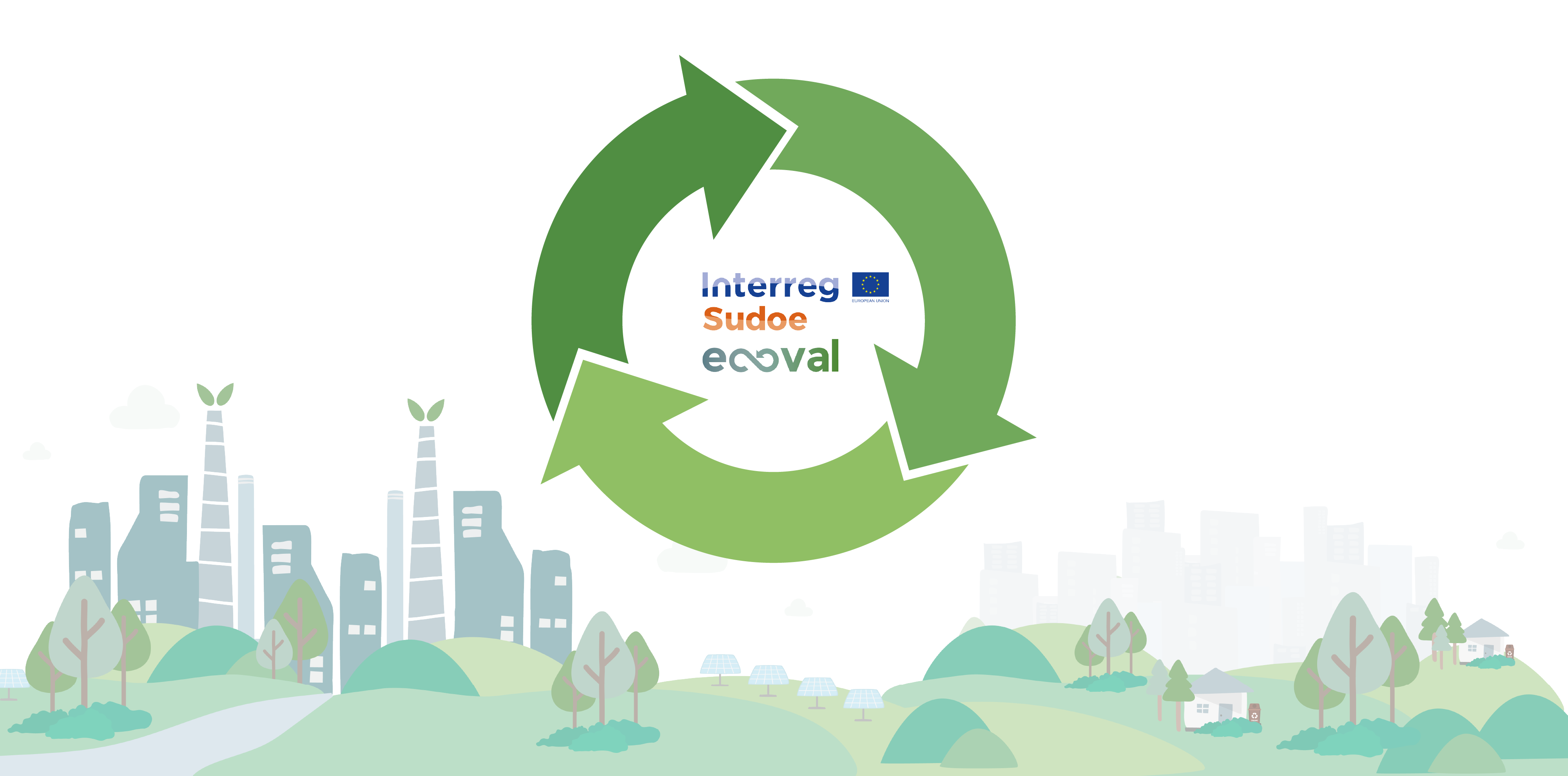Industries are increasingly aware of the importance of implementing policies that respond to the context of the environmental crisis we are facing, with “reduce, reuse and recycle” being the new guidelines to be established in their ways of operating. Many decide to get involved and collaborate in research projects capable of developing innovative technologies aimed at taking advantage of waste or resources that have already been used to generate new goods, providing alternatives that are friendlier to the planet.
The urgency to apply circular alternatives in production processes to minimise the damage they can generate is one of the reasons why companies such as Repsol, Fertiberia or Grupo Valora have joined to support R&D&I projects such as those currently being developed in the Ourense biofactory, managed by Viaqua, in order to build a future where fossil fuels are no longer essential.
ECOVAL Sudoe, led by Cetaqua, the Water Technology Centre, and co-financed by the Interreg Sudoe Programme through the European Regional Development Fund (ERDF), is a project that aims to offer solutions of real application for the chemical, petrochemical and fertiliser industries. “Wastewater treatment processes generate large quantities of sludge. These have traditionally been seen as a waste to be eliminated, however, in the ECOVAL project we demonstrate that they can be a product from which high added value raw materials are generated that have potential for application in the chemical and petrochemical industry to produce compounds such as lubricants, bioplastics, paints or adhesives,” explains Antón Taboada, Project Manager of the project in Cetaqua Galicia.
“Cetaqua is doing magnificent work in the optimisation of the integral water cycle and the conversion of wastewater treatment plants into biofactories,” says Enrique Espí, senior research scientist at Repsol’s Technology Centre, a partner in the European project.
Repsol, a partner in the project, says it is “especially interested” in the use of sewage sludge as an “alternative and renewable raw material” to be applied in the manufacture of its plastic materials, says Espí, who considers the task of transforming sludge that was considered a “waste to be eliminated” into a “new resource” to be particularly noteworthy, an action aligned with one of its major challenges: “to obtain zero net emissions by 2050”, he adds.
Sectors specialising in the production of fertilisers are also one of the potential recipients of the by-products generated in ECOVAL. This is the case of Fertiberia, which aims to develop new products that integrate nutrients recovered from bio-waste. In this way, the head of R&D&I projects at Fertiberia, María Cinta Cazador, sees the ECOVAL project as a possibility of “advancing along this path”, constituting an example where “the viability and commercialisation of the proposed solutions have taken into account the participation of this final part of the value chain” and where “all the parties are fed back and benefit”, she points out.
On the other hand, Valentín Jiménez, Director and Group Managing Director of the Valora Group, a company specialising in services and products for the agricultural sector and another of those interested in the use of this bio-waste to apply to their business model, explains that investing in “projects that make this a tangible reality is one of the most effective ways to actively fight for the conservation of our environment, not only on an environmental level, but also on a social and economic level”.
“We have always understood WWTP sludge as a resource that, under exhaustive control and necessary transformation, can be converted into high added value products with a huge potential market; even more so in our country, which is increasingly affected by the loss of organic matter from our soils”. Valentín Jiménez explains.
Regarding the path that is currently being taken to establish more circular models, Enrique Espí, from Repsol, refers to a current context in which the energy sector is facing “new challenges, but also new opportunities where public-private collaboration is going to be fundamental”.
Similarly, María Cinta Cazador, from Fertiberia, highlights the importance of forging alliances that allow progress to be made, considering that “there are great technical difficulties in reaching a management model that achieves the optimum environmental and is economically viable”. For this reason, she explains, “collaboration between them, research bodies and end users, in this case, the fertiliser industry, is fundamental”, she concludes.


